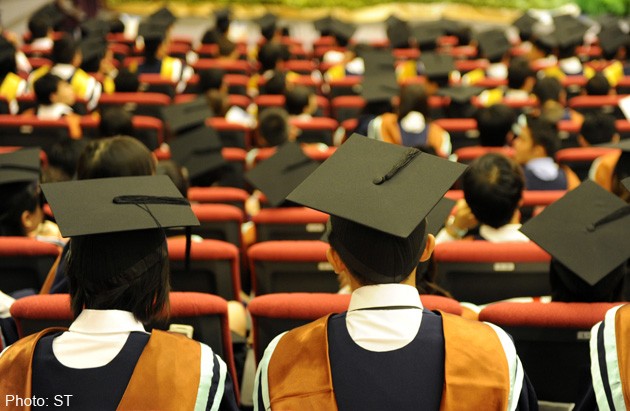Invest in current PhD students


I welcome the introduction of the Ministry of Education-Autonomous University (MOE-AU) scholarship to encourage more Singaporeans to pursue PhDs ("MOE to offer scholarship for budding academics"; Feb 3).
However, I have doubts about the scholarship's efficacy.
The MOE-AU scholarship provides for tuition fees and stipends over the course of the scholarship holder's undergraduate and doctoral programmes. In return, he is bonded.
This is a problem.
Because the scholarship recipients are guaranteed a position after their PhD, they may be less motivated to do well in their research, which is a large part of their brief as a tenure-track faculty member.
Furthermore, universities need to be able to hire the best available talent for the position, regardless of nationality. If not, reputational concerns are likely to be created.
It is difficult to ascertain if young applicants are qualified to be tenure-track faculty members.
Young applicants are unlikely to understand what it means to undertake an academic career.
Even current PhD students, who have had more time to discover their interests, and have been deemed proficient in their fields, struggle to finish doctoral programmes.
In fact, data collected by the Council of Graduate Schools in the United States found that about one-fifth of PhD students quit their programmes within the first four years.
Only slightly less than half complete their PhD within seven years. If the scholarship holder fails to finish his course, or turns out not to be the best hire, the taxpayer dollars spent on him would be wasted.
It would be more prudent to invest in the existing pool of Singaporeans who are pursuing their PhDs.
While many PhD programmes already provide modest stipends and tuition waivers, the funding is usually sufficient only for subsistence, and does not provide for additional research expenditure.
I suggest that the MOE focus its initiatives towards supporting existing Singaporean PhD students and encouraging them to apply to be faculty members at the local universities.
For instance, smaller-scale funds to support their research could be provided.
Such initiatives would be more efficient, more productive and less risky.
Elvin Ong

This article was first published on Mar 21, 2015.
Get a copy of The Straits Times or go to straitstimes.com for more stories.